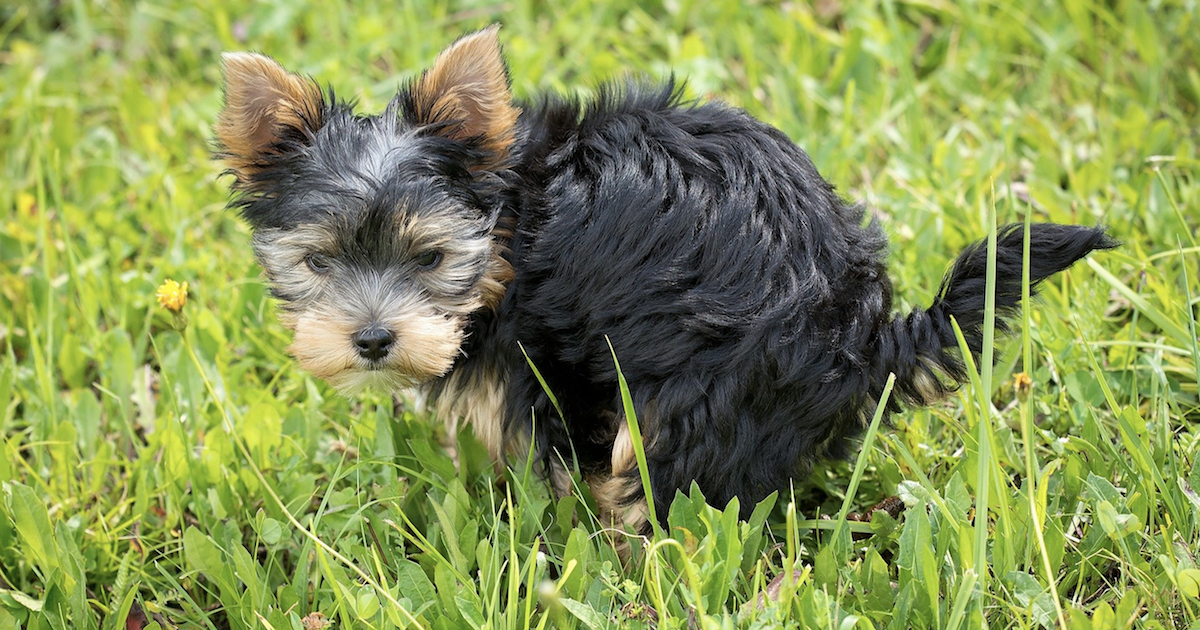 Shutterstock
Shutterstock
For many dog owners, rainy days bring a familiar challenge: the dreaded “poop strike.” Just as you’re gearing up for a quick walk, your dog may pull back on the leash, reluctant to go outside or do their business in the rain. This puzzling behavior is more common than you’d think and can turn a simple outing into an epic battle of wills. From sensitivity to textures and sounds to natural instincts, there are several key reasons why dogs seem to stage a protest when wet weather arrives.
Sensitive Paw Pads and Wet Ground
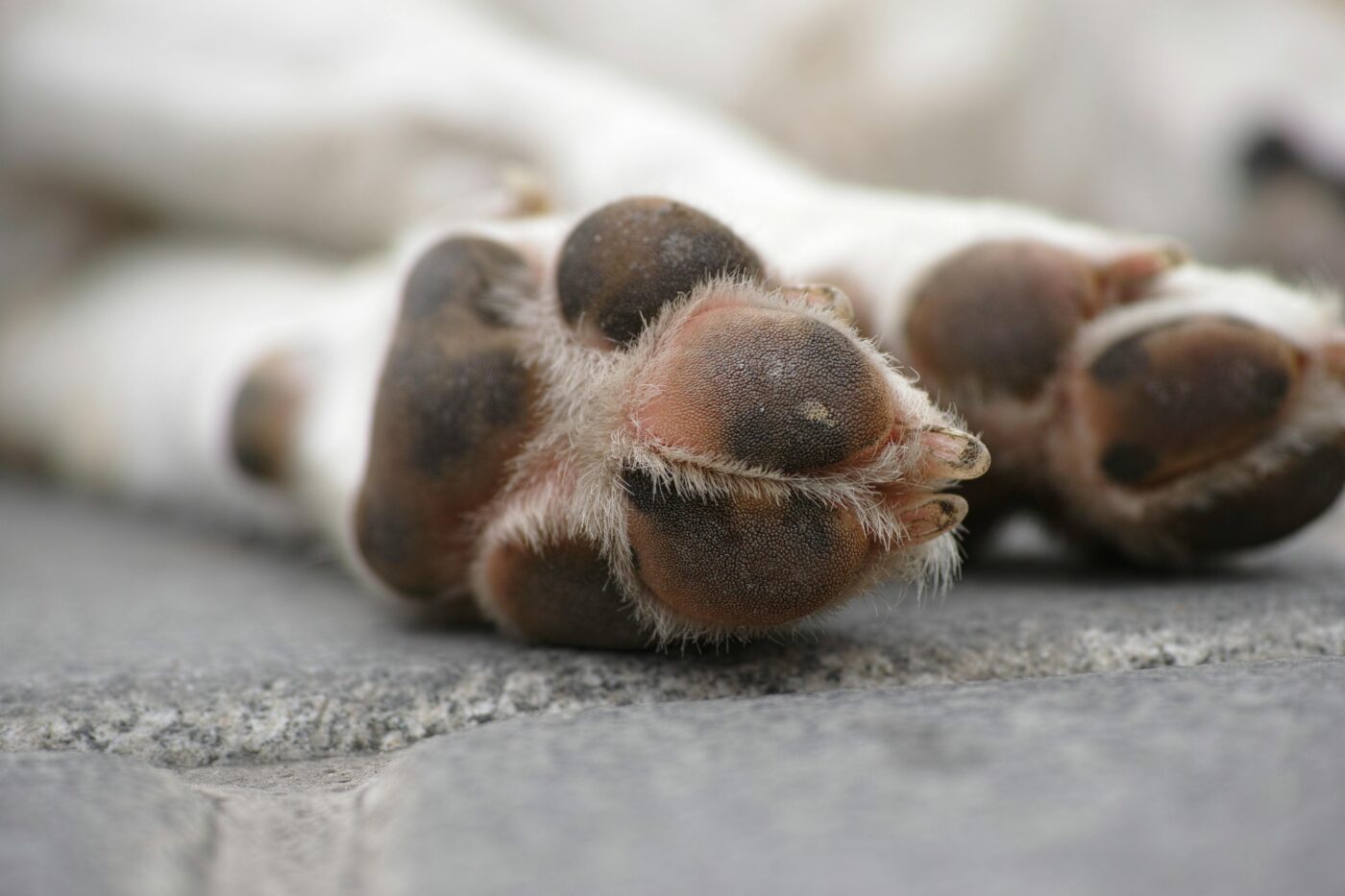 Shutterstock
Shutterstock
One of the primary reasons dogs dislike pooping in wet weather is due to their highly sensitive paw pads. Dogs’ paws have numerous nerve endings, making them sensitive to textures, moisture, and temperatures. When the ground is wet, the sensation can feel unpleasant, cold, or even squishy, which some dogs find uncomfortable. For dogs that dislike having their paws wet, stepping on soggy grass or wet pavement may make them hesitate, and as a result, they may avoid lingering long enough to poop. This sensitivity to wet ground can make bathroom breaks a challenge on rainy days.
The Smell of Rain Affects Their Scent Marking
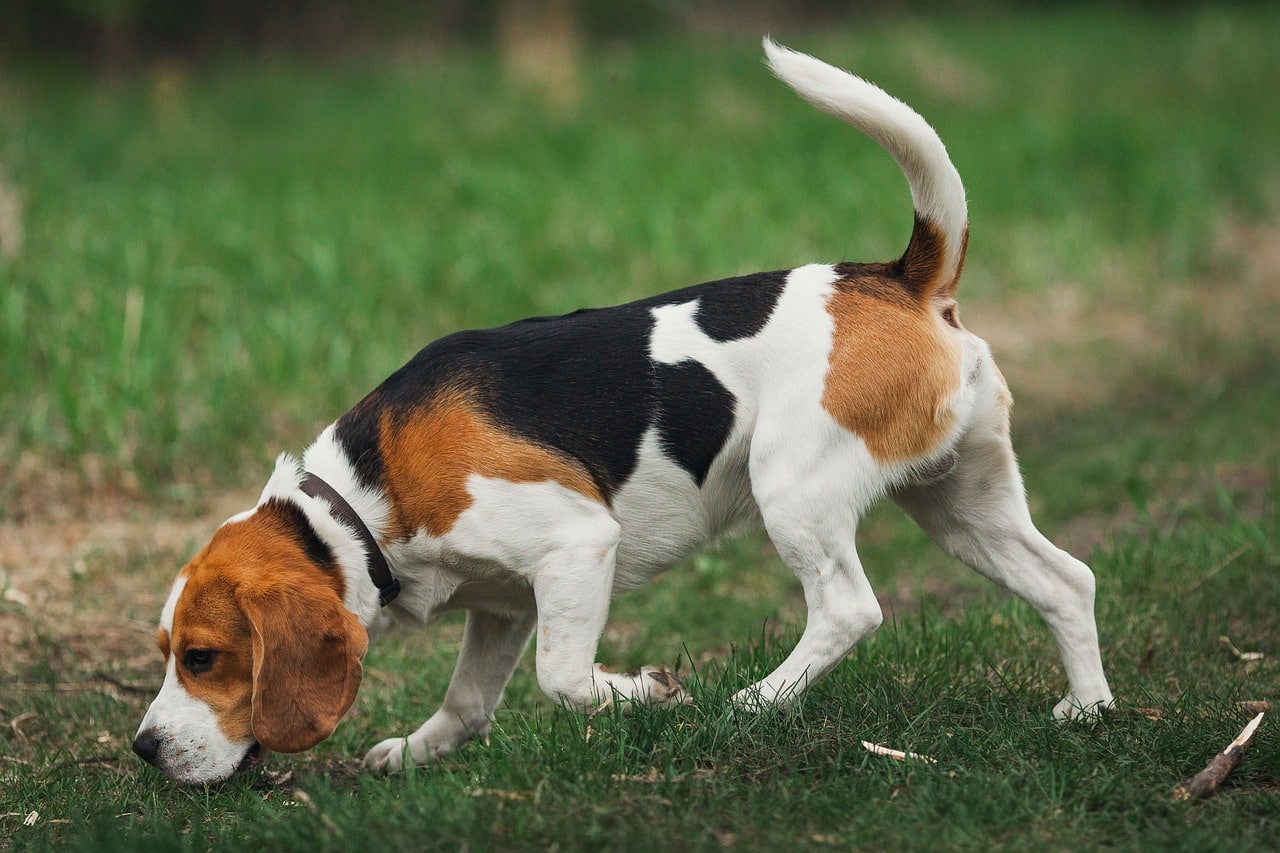 Shutterstock
Shutterstock
Dogs rely heavily on scent marking, which is how they establish territory and communicate with other dogs. Rain can wash away familiar scents, which makes it difficult for dogs to find their usual spots or feel comfortable leaving their scent behind. When their established spots no longer smell like their territory, dogs may feel disoriented or reluctant to “go” in these areas. For dogs who rely on scent to navigate their world, the altered smell of wet ground can interfere with their usual bathroom habits, making them less likely to relax and poop.
Wet Fur and Uncomfortable Dampness
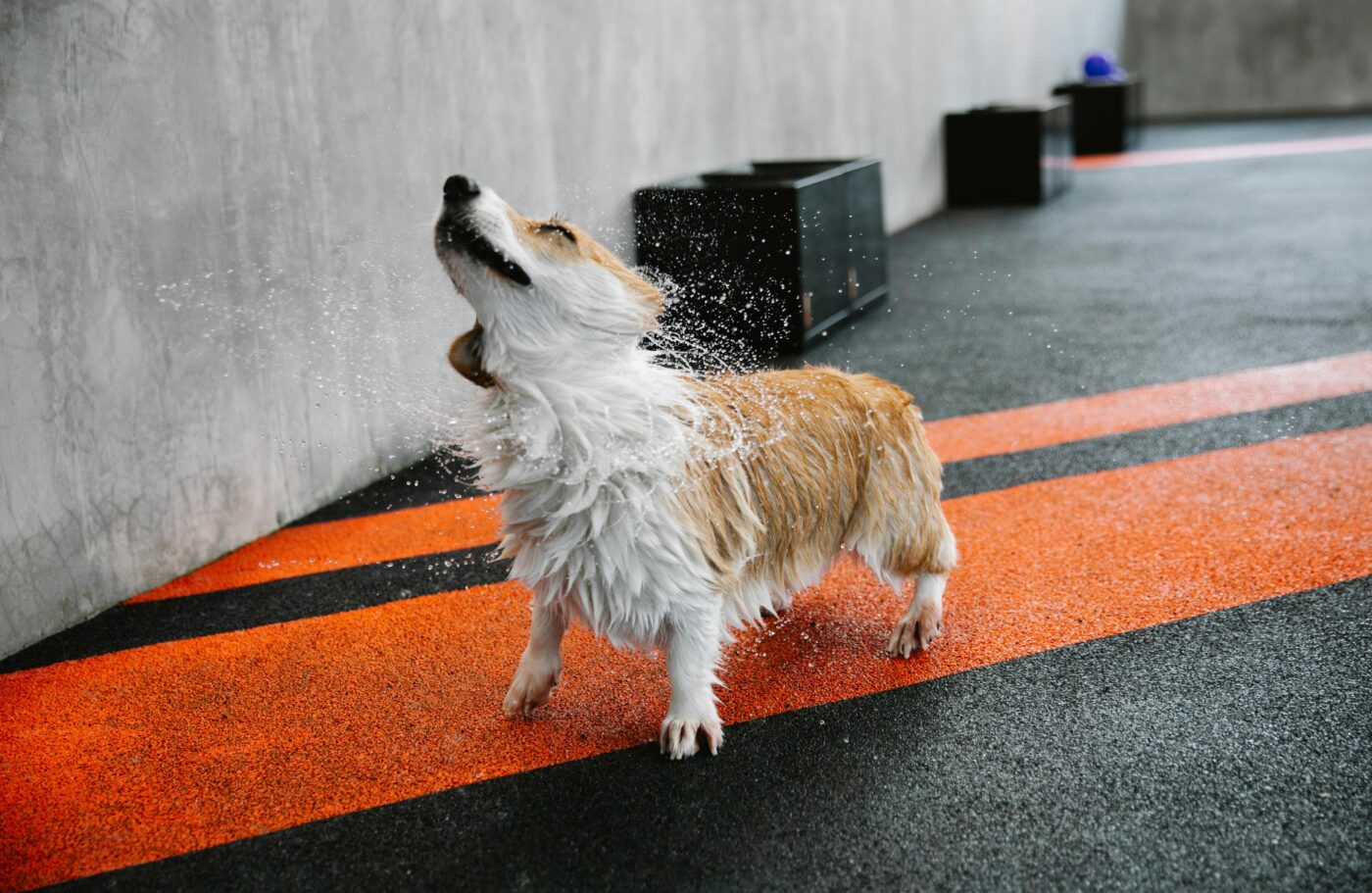 Shutterstock
Shutterstock
Another reason dogs may hesitate to go outside in the rain is simply because they dislike getting wet. For some dogs, the feeling of rain on their fur can be uncomfortable and irritating. Wet fur takes longer to dry and can feel heavy or itchy, which many dogs find unpleasant. This aversion to wet fur can make the prospect of going outside less appealing, especially if they anticipate getting soaked. Small dogs or dogs with thin coats tend to be particularly sensitive to rain, as they don’t have as much protection against the elements.
The Sound of Rain and Thunder
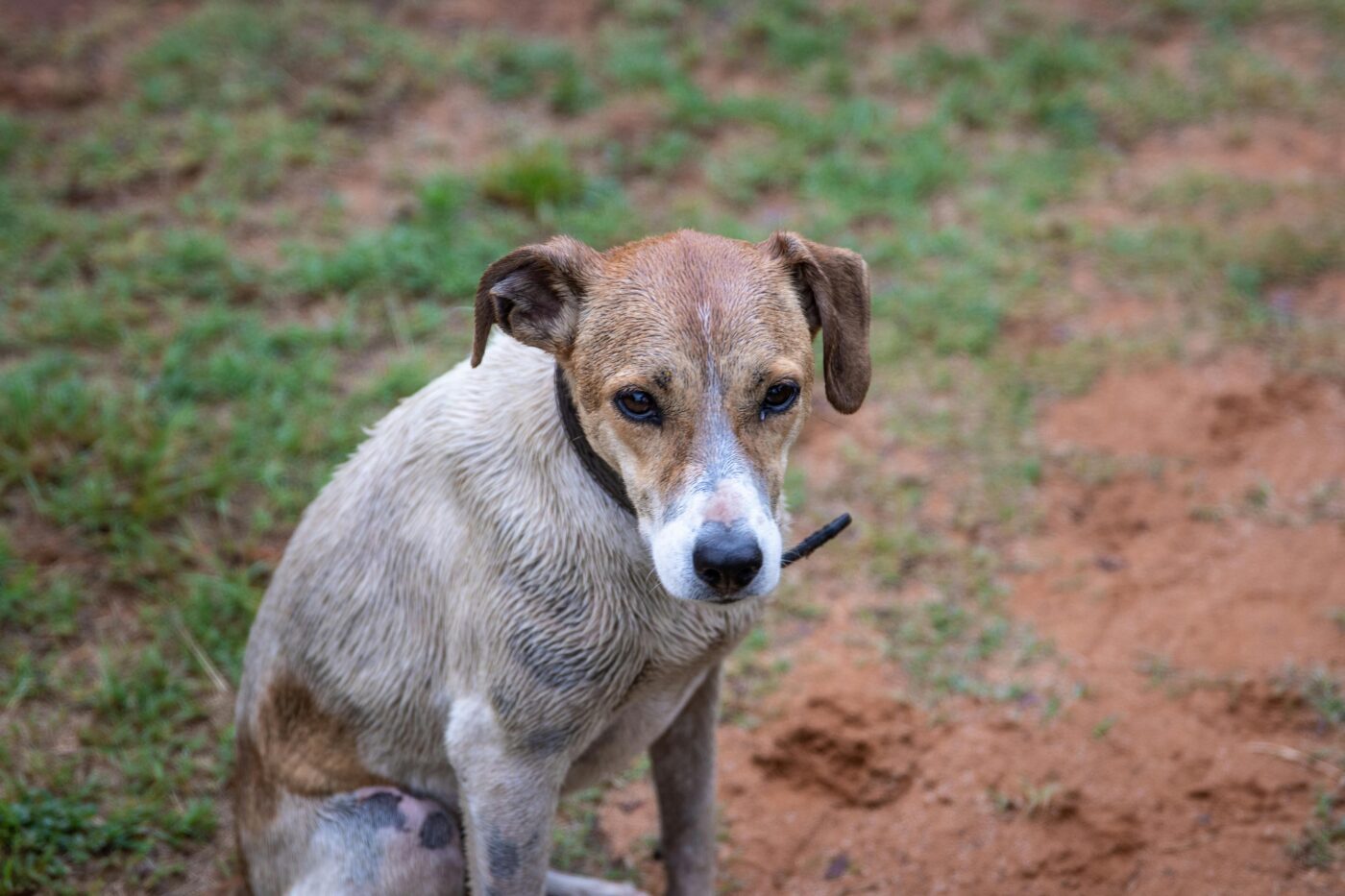 Shutterstock
Shutterstock
Some dogs are sensitive to sounds, and rain often brings along other auditory stimuli that can be distressing. The sound of raindrops, especially on hard surfaces, can be unsettling for dogs with sensitive hearing. Additionally, thunder, wind, and other noises that come with a rainstorm can heighten their anxiety. If a dog is anxious or uncomfortable due to the sounds associated with rain, they may be too distracted to focus on pooping. For dogs with noise sensitivities, rainy days can be overwhelming, leading them to avoid outdoor activities as much as possible.
Changes in Routine Can Be Unsettling
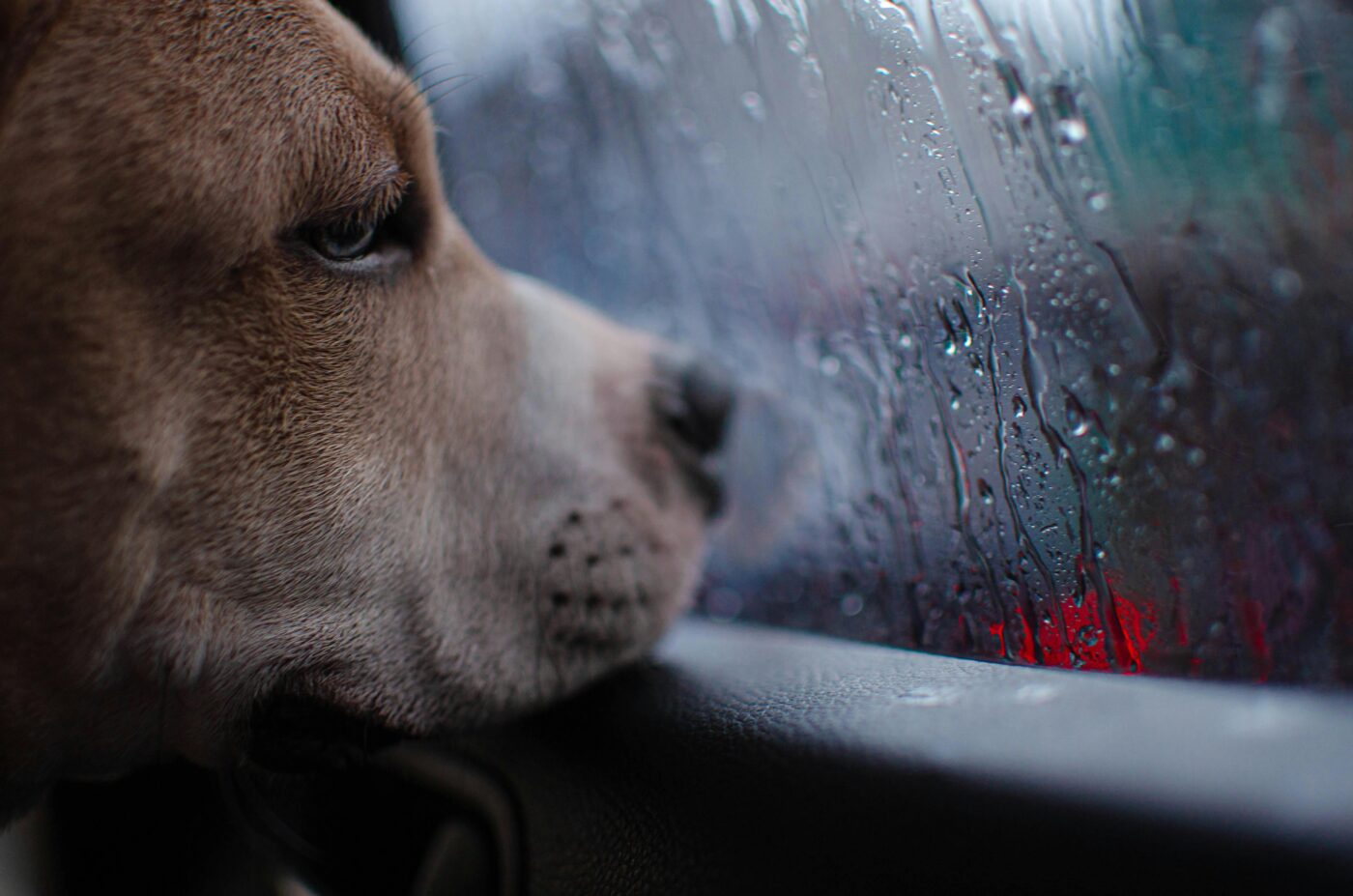 Shutterstock
Shutterstock
Dogs are creatures of habit, and any changes to their routine can make them feel uneasy. Rainy days often disrupt the usual flow of events, whether it’s a shortened walk, a different route, or the presence of an umbrella. For dogs that thrive on predictability, these changes can cause anxiety and reluctance to engage in their normal bathroom behaviors. When their routine is disrupted, dogs may feel out of sorts, making them less likely to poop. For some dogs, the combination of rain and a changed routine creates just enough discomfort to resist doing their business.
Feeling Exposed in the Open
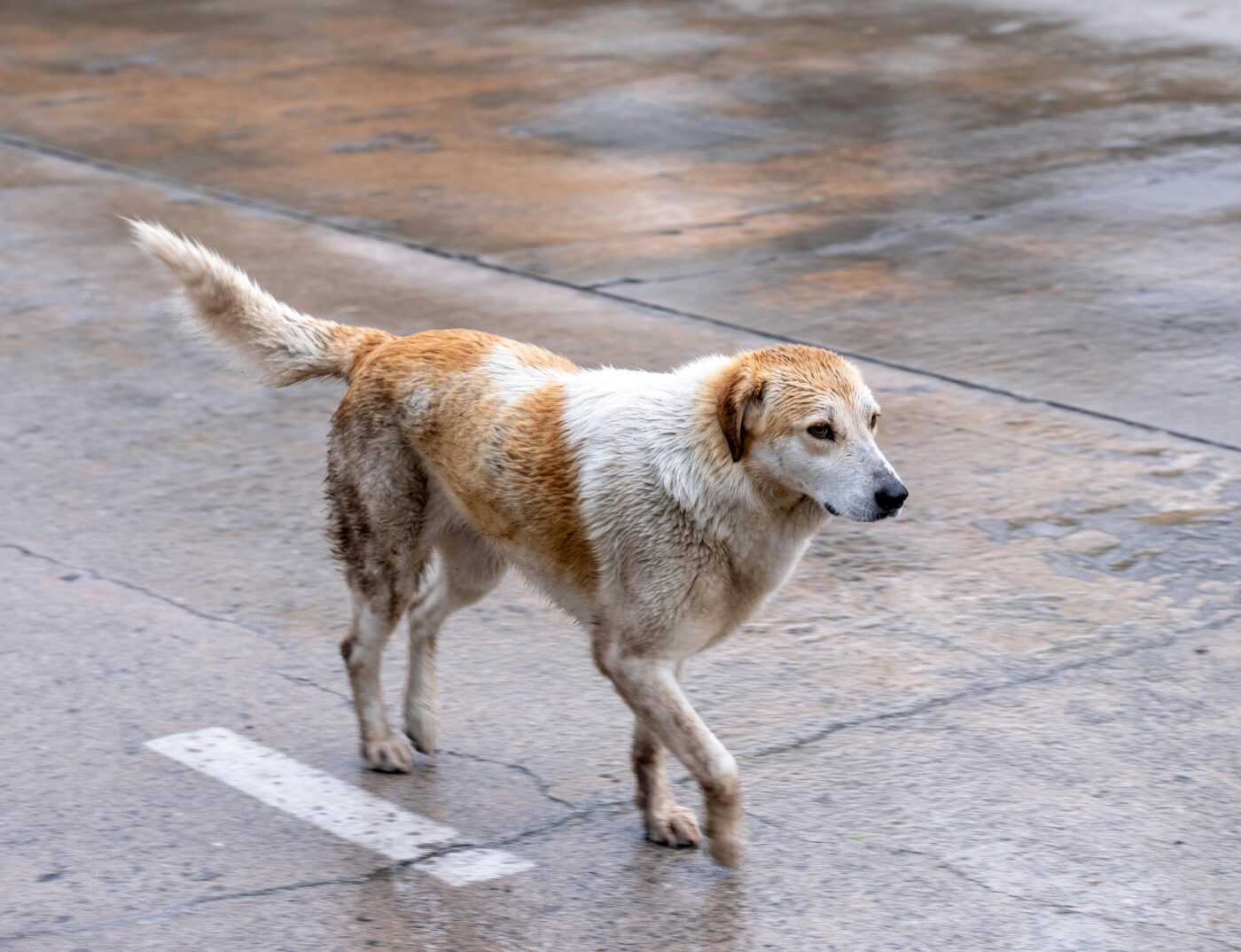 Shutterstock
Shutterstock
Some dogs may feel more vulnerable or exposed when the ground is wet. Rain reduces scent trails and masks sound, making it harder for them to detect potential threats. For dogs with a heightened sense of self-preservation, this unfamiliar situation can make them feel uneasy about stopping to poop. The need to stay alert for potential threats, combined with the discomfort of wet surroundings, can lead dogs to resist pooping. Dogs that are naturally more cautious or alert may exhibit this behavior more strongly as rainy weather heightens their sense of vulnerability.
Picky Pooch Preferences and Bathroom Habits
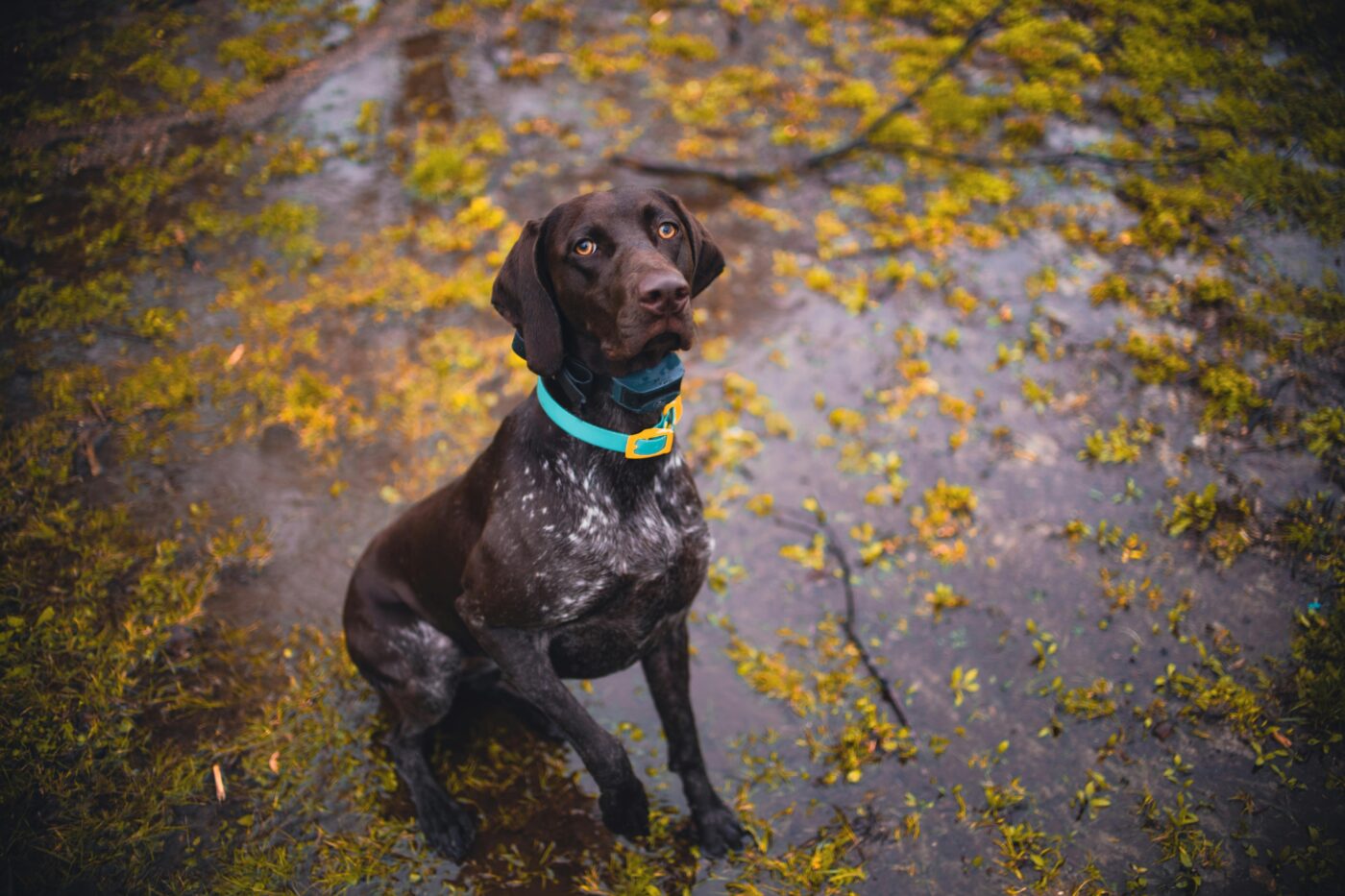 Shutterstock
Shutterstock
Just like humans, some dogs have preferences about where and when they feel comfortable going to the bathroom. Certain dogs are pickier than others when it comes to finding the “right” spot. Rain can make finding that perfect spot challenging, especially if the ground is wet or muddy. For dogs that prefer a dry, grassy area or a specific surface, wet weather can pose a major inconvenience. This preference for particular bathroom conditions can make rainy days especially frustrating for both the dog and the owner, as the dog may refuse to settle for anything less than ideal.
Rain’s Impact on Body Temperature
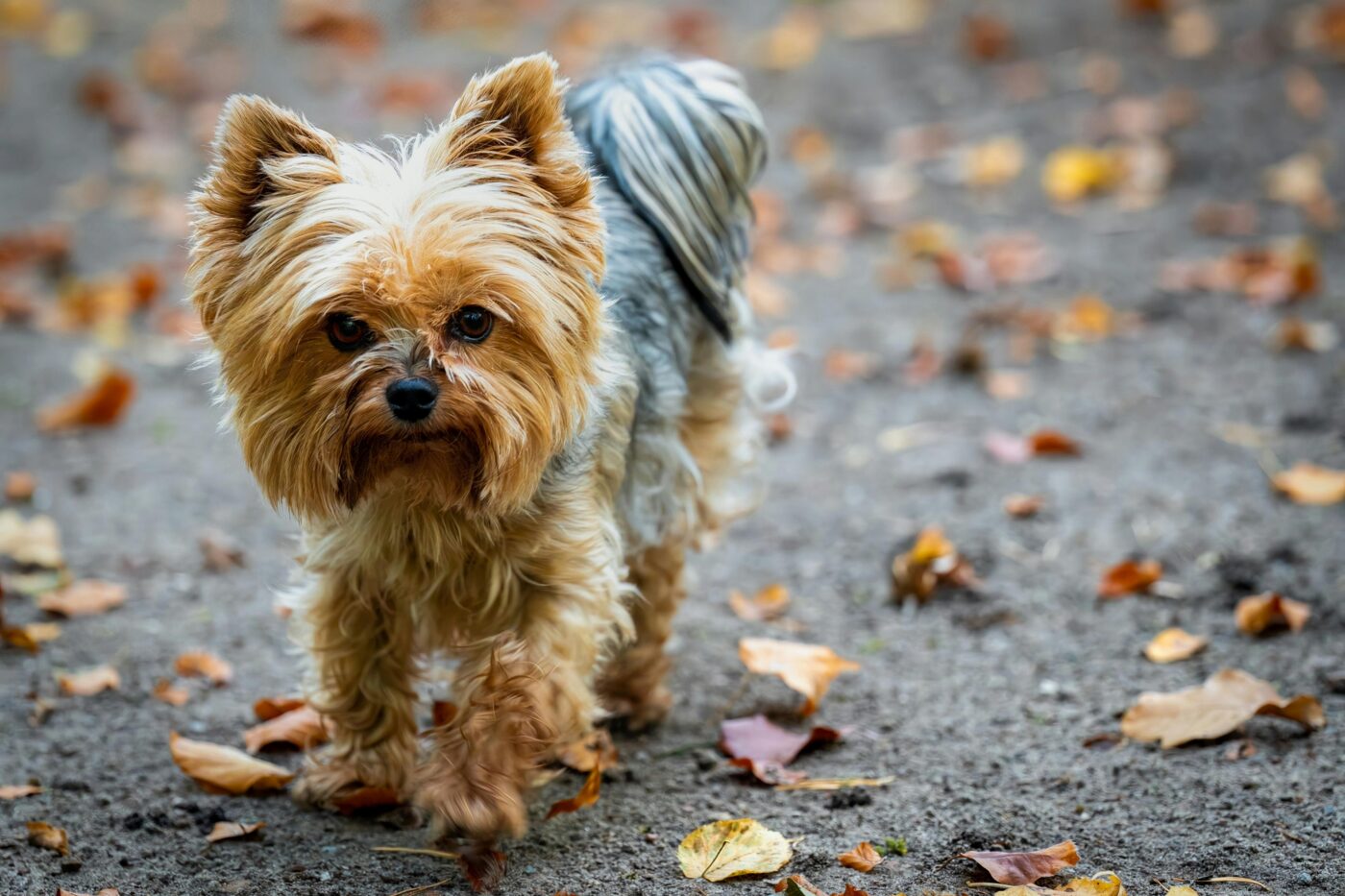 Shutterstock
Shutterstock
When it’s cold and rainy, dogs’ body temperatures can drop more quickly than usual, especially in small breeds or those with short coats. This discomfort from the cold can make dogs want to cut their outdoor time short, avoiding activities that require them to stay in one place, like pooping. For dogs who are more sensitive to temperature changes, the combination of wet ground and cool air can create an uncomfortable experience, making them eager to get back inside as quickly as possible. Their instinct to seek warmth and avoid the cold may override the need to poop.
Anxiety and the Rainy Day Blues
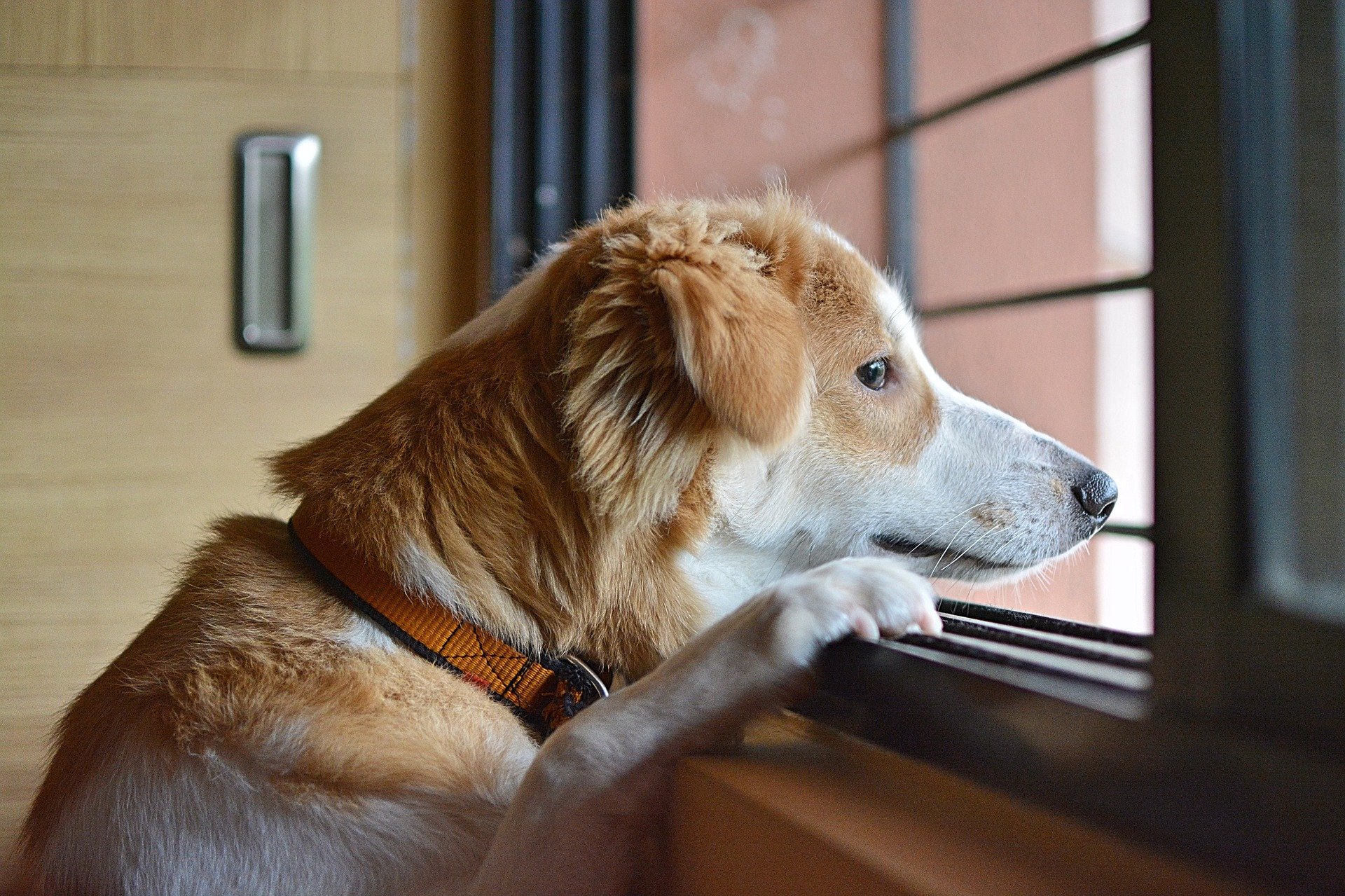 Shutterstock
Shutterstock
Some dogs are more prone to anxiety, and rainy weather can heighten this sensitivity. Rain often means darker skies, thunder, and a change in atmosphere that some dogs find unsettling. Dogs that are prone to anxiety may feel stressed or nervous in these conditions, making it difficult for them to relax enough to poop. Their heightened anxiety may cause them to focus more on getting back to the safety of home rather than completing their bathroom routine. For anxious dogs, a rainy day can bring out a reluctance to engage in any outdoor activity, including pooping.
Dogs’ Sense of Cleanliness and Puddles
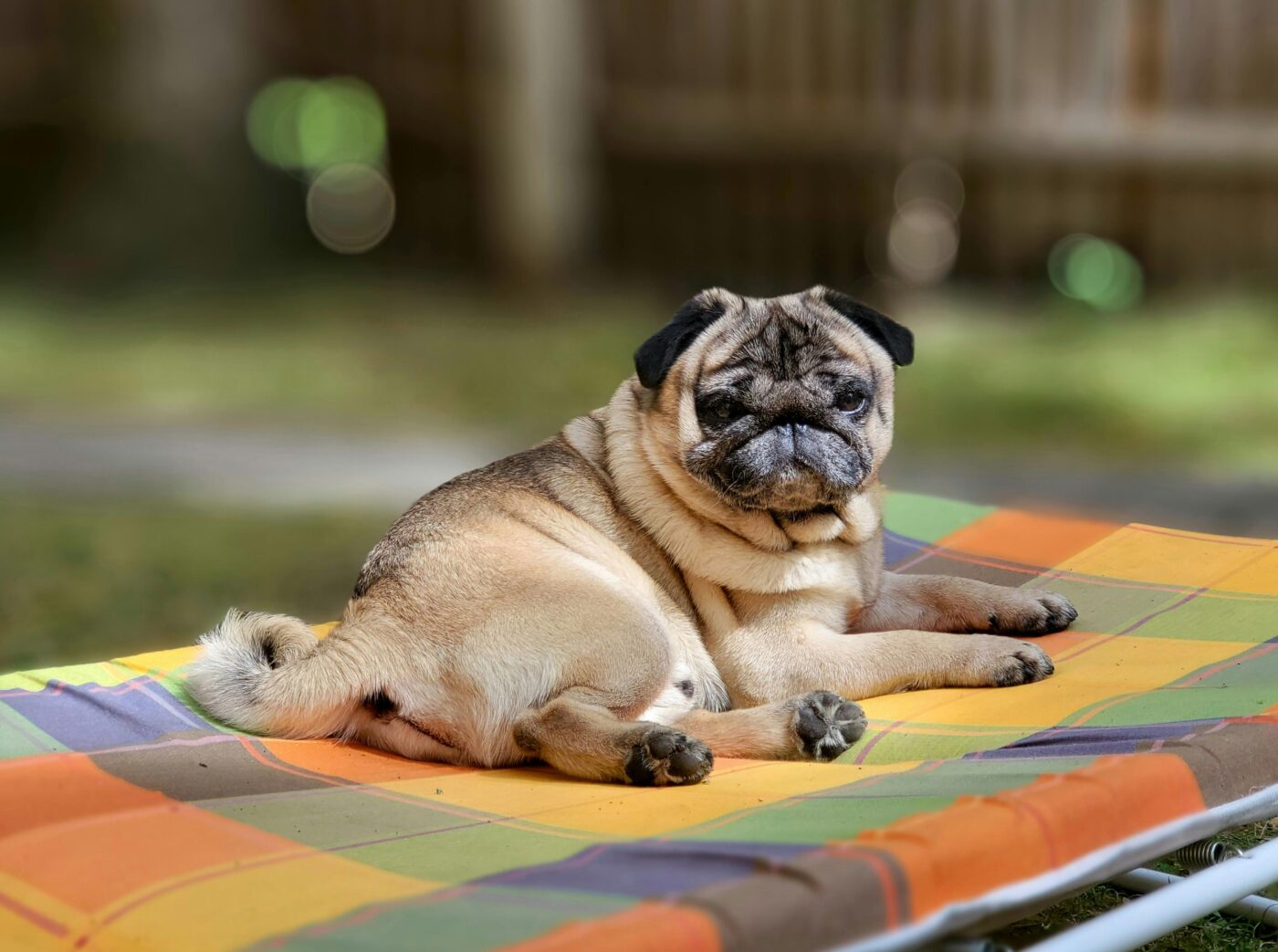 Shutterstock
Shutterstock
Dogs are naturally clean animals, and some are more fastidious than others. For these dogs, stepping in wet mud or dirty puddles can be a major deterrent. The thought of getting their paws muddy or wet can cause them to avoid wet areas altogether. For dogs that are particularly picky about cleanliness, the idea of pooping in a muddy area can be unappealing, making them resist going outside. This fastidiousness is especially common in certain breeds and may be more noticeable in smaller dogs that dislike getting their paws wet or dirty.
The Difference Between Rain and Swimming
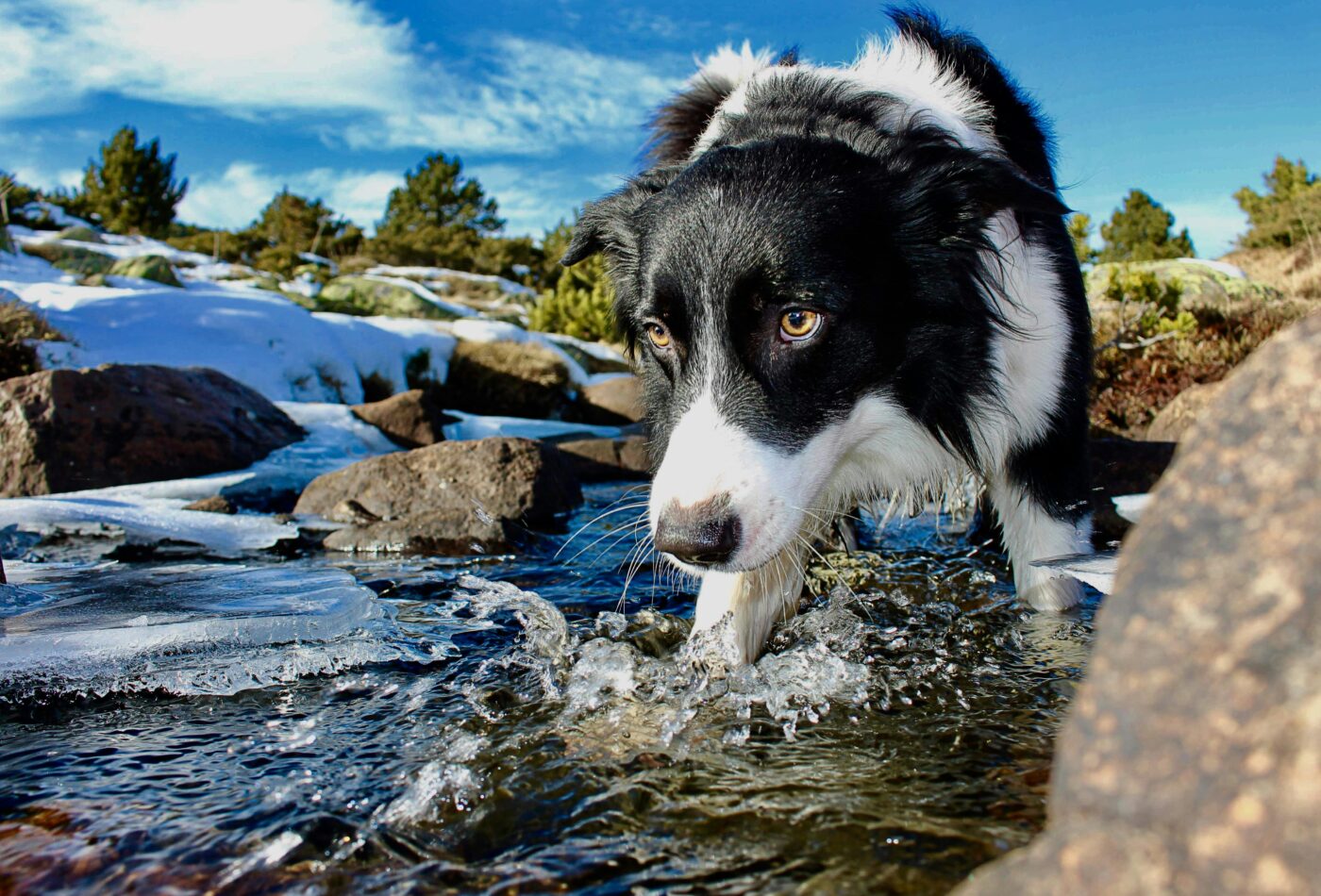 Shutterstock
Shutterstock
Some dogs that refuse to poop in wet weather might surprise you by loving to swim. The distinction lies in the level of control and intent; dogs that enjoy swimming choose when and how to enter the water, whereas rain is something they can’t control. For many dogs, the voluntary act of swimming feels different from the unexpected, constant drizzle of rain. This difference in control may explain why some water-loving dogs still resist rainy-day walks. When it comes to water, dogs may simply prefer to be the ones deciding when to get wet.
The Real Rainy Day Question
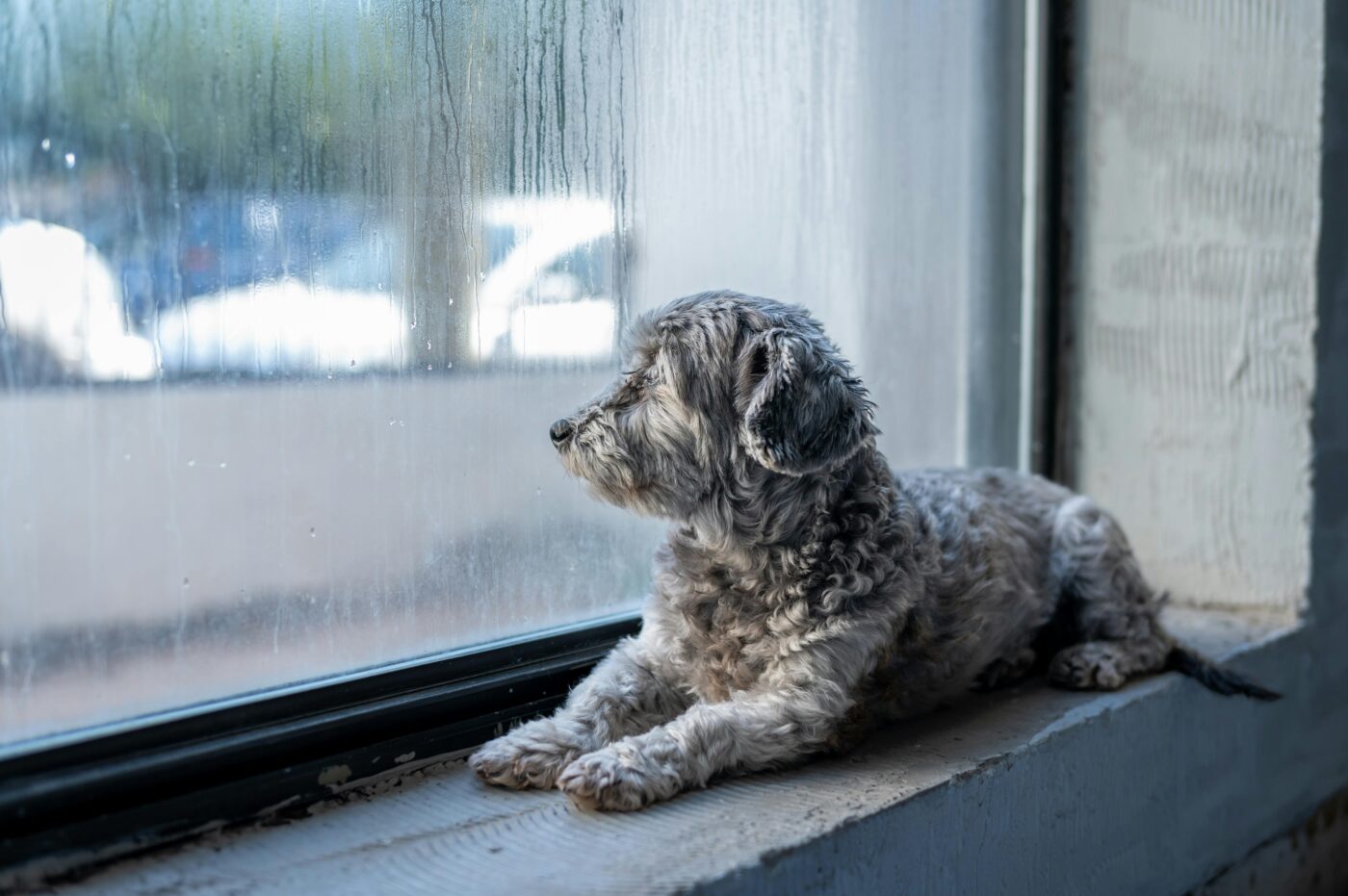 Shutterstock
Shutterstock
Next time your dog gives you that pleading look on a rainy day, you might better understand their reluctance. Whether it’s due to sensitive paws, an aversion to cold puddles, or a strong preference for staying dry, your dog’s rainy-day drama probably has a valid reason behind it. As you try to coax them outside with treats and encouragement, keep in mind—they’re likely thinking, “I’ll poop… but only if it’s absolutely necessary.” Sometimes, a little empathy goes a long way in understanding our furry friends’ quirks.
 Toledo, United States.
Toledo, United States.